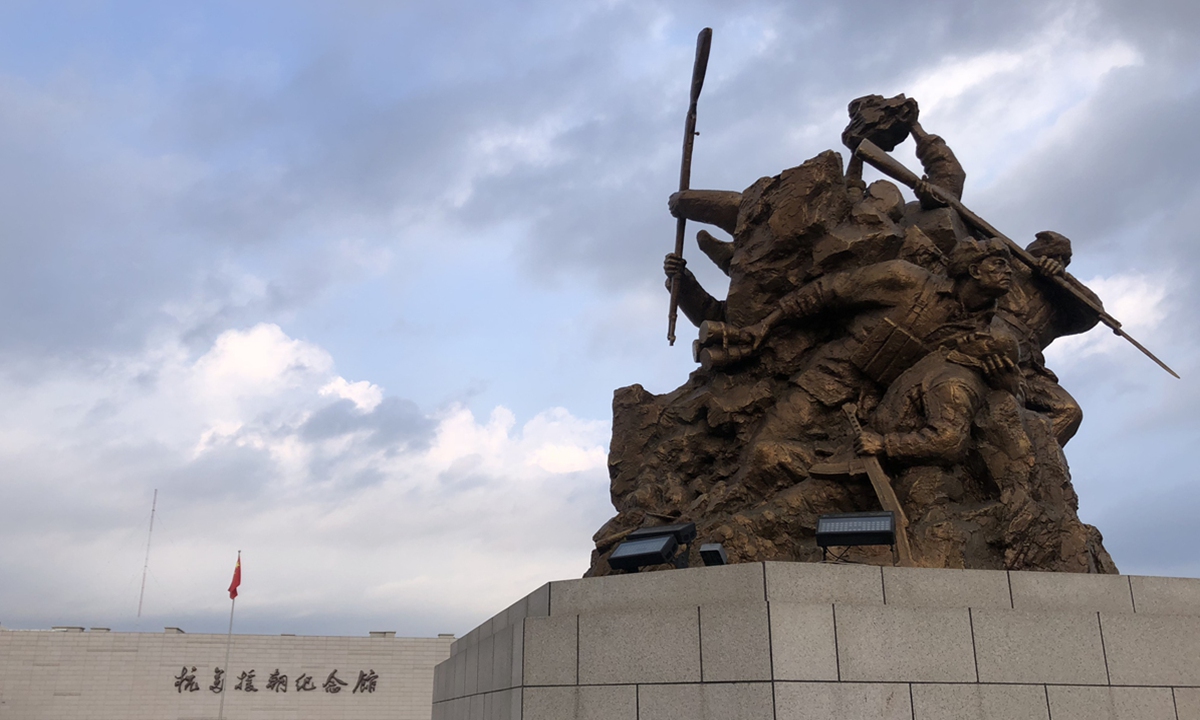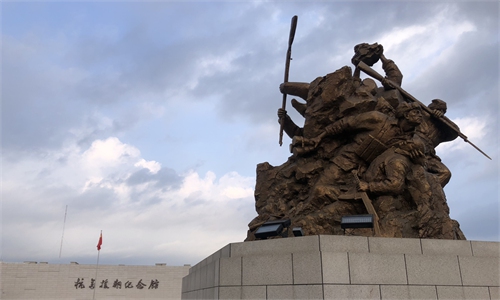
The Memorial Hall of the War to Resist US Aggression and Aid Korea in Dandong, Northeast China's Liaoning Province Photo: Li Qiao/GT
Thursday marks the 70th anniversary of the signing of the armistice agreement that put the Korean War (1950-53) on hold. The war, which erupted in the early aftermath of World War II, was initially a civil war between North and South Korea. However, countries, including the US and China, were later involved. After significant human losses and casualties, the armistice was signed on July 27, 1953.
Since the signing of the armistice agreement, despite periods of rapprochement during the administrations of Kim Dae-jung and Moon Jae-in, there have been mutual accusations and even military frictions due to the lack of trust and prevailing hostility between North and South Korea. As a region of intersecting and fiercely contested interests among major powers, the Korean Peninsula, and even the broader region of Northeast Asia, have yet to establish a stable security framework.
The Korean War and the subsequent changes over the decades since the armistice agreement hold valuable lessons for all peace-loving people in the world.
The first lesson is that prolonged confrontation and tension often serve as a prelude to conflicts and even wars. Major powers should assume due responsibility for maintaining peace and security on the Korean Peninsula, rather than exacerbating tensions and destabilizing the region's security.
Before the outbreak of the Korean War, hostilities between the northern and southern parts on the Peninsula were already building up. The intervention, instigation, and support from external powers eventually led to the outbreak of war.
Currently, the security situation on the Korean Peninsula and even throughout all of Northeast Asia is serious. Since the signing of the armistice agreement, North Korea has been unable to address its security concerns, and it has lost faith in its contacts with the US and South Korea.
The Biden administration also rejected the "strategic patience" approach toward North Korea. The US frequently conducts massive joint military drills with South Korea, strengthens the security cooperation mechanism between the US, Japan, and South Korea, enhances intelligence sharing, and coordinates operational exercises targeting North Korea, China, and Russia. The US' approach of applying the maximum pressure possible on North Korea not only makes things worse between North and South Korea, but also raises the risks of regional conflict.
In reality, the tension on the Korean Peninsula and even in Northeast Asia provides the US with reasons to maintain and strengthen its military presence in the region. Therefore, to maintain regional peace and stability, the US must first uphold its obligations as a major power.
The second lesson is that security talks, the creation of a crisis management system, and the establishment of a security cooperation mechanism are crucial.
The Korean War and the spiraling escalation of tensions on the Korean Peninsula after the signing of the armistice agreement fully demonstrate the lack of mutual trust in security among the relevant parties. At the same time, the region also lacks effective crisis management mechanisms and a recognized multilateral security framework.
To achieve lasting peace on the Korean Peninsula and even in Northeast Asia, the relevant parties still need to actively engage in security dialogues at bilateral, trilateral, and multilateral levels to build trust. At the same time, active efforts should be made to establish crisis management mechanisms to avoid accidental conflicts as much as possible.
The third lesson is that China's constructive role in maintaining regional peace is crucial.
China has long been a strong pillar in maintaining peace and stability on the Korean Peninsula and even in Northeast Asia. As Chinese Foreign Ministry spokesperson Wang Wenbin said in 2021, China's position on the Korean Peninsula issue has always been clear. The issue of the Korean Peninsula is on China's doorstep, and China will continue to play a constructive role until lasting peace and stability are achieved.
China's policy on the Korean Peninsula emphasizes advancing the political resolution process in a balanced manner based on the dual-track approach and the principle of taking phased and synchronized actions. It emphasizes that the US should pay attention to addressing the legitimate concerns of the North Korean side and support inter-Korean reconciliation and cooperation. China not only actively promotes peace talks between North and South Korea but has also made arduous efforts to facilitate multilateral security dialogues. Even if the road ahead is challenging, China will continue to contribute to effective security governance on the Korean Peninsula and even in Northeast Asia.
The author is a senior researcher at the National Security Research Institute of Renmin University of China. opinion@globaltimes.com.cn

